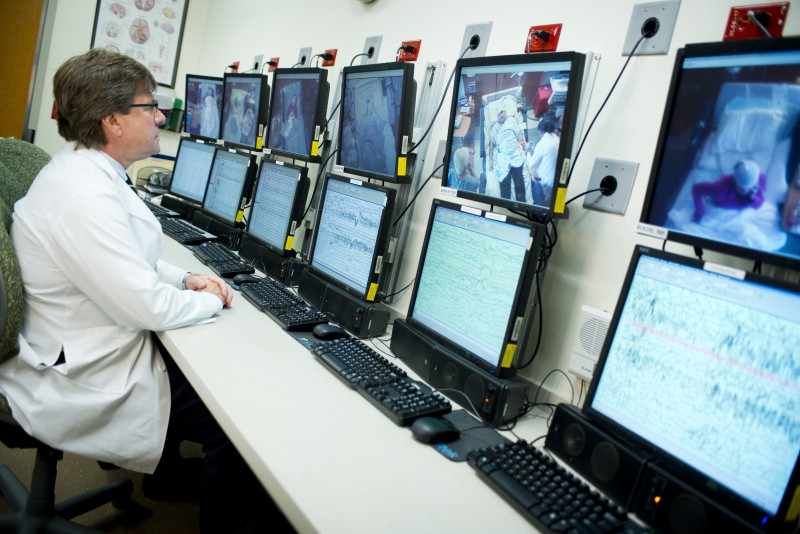-
Minnesota
Mayo receives federal grant to develop smart devices to predict, stop seizures
ROCHESTER, Minn. — Researchers at Mayo Clinic were awarded a $6.8 million, five-year federal grant from the National Institutes of Health to develop intelligent devices to track and treat abnormal brain activity in people with epilepsy. The grant, part of a presidential initiative aimed at revolutionizing the understanding of the human brain, is called Brain Research Through Advancing Innovative Neurotechnologies or the BRAIN Initiative.
Epilepsy affects 60 million people worldwide and 3 million in the U.S. Approximately one-third of people with epilepsy will continue having seizures, despite taking daily medications. Seizures, the hallmark of epilepsy, are sudden events that strike patients without warning. The goal of the research is to develop an implantable device that can record brain activity continuously to forecast upcoming seizures and stimulate multiple brain regions in real time to prevent seizures before they ever occur.
Journalists: Sound bites with Dr. Worrell are available in the downloads.
MEDIA CONTACT: Duska Anastasijevic, Mayo Clinic Public Affairs, 507-284-5005, email: newsbureau@mayo.edu
"People with epilepsy live in a constant fear, because seizures strike randomly. This uncertainty seriously impacts their quality of life,” says Gregory Worrell, M.D., Ph.D., a Mayo Clinic neurologist who leads the Mayo Clinic Systems Electrophysiology Lab and is the principal investigator on the BRAIN grant. “They often only have seizures a small percentage of their lifetime, but they must take medication daily, because of the apparent random nature of seizures. Our goal is to be able to reliably predict the occurrence of a seizure. The new technology, coupled with the big data analysis, will also be used for effective brain stimulation to prevent seizures before they ever occur," adds Dr. Worrell.
The grant (UH2NS095495-01) is a collaborative effort among researchers from academia and industry. The award, which is for $1.4 million per year for up to five years, will support a multidisciplinary team of neurologists, scientists and engineers from industry and academia. Investigators include:
• Dr. Worrell, Mayo Clinic
• Squire Matt Stead, M.D., Ph.D., Mayo Clinic
• Benjamin Brinkmann, Ph.D., Mayo Clinic
• Jamie Van Gompel, M.D., Mayo Clinic
• Brian Litt, M.D., University of Pennsylvania
• Zack Ives, Ph.D., University of Pennsylvania
• Vladimir Cherkassky, Ph.D., University of Minnesota
• Ned Patterson, D.V.M., Ph.D., University of Minnesota
• Tim Denison, Ph.D., Medtronic Inc.
###
About Mayo Clinic
Mayo Clinic is a nonprofit organization committed to medical research and education, and providing expert, whole-person care to everyone who needs healing. For more information, visit http://www.mayoclinic.org/about-mayo-clinic or https://newsnetwork.mayoclinic.org/.








